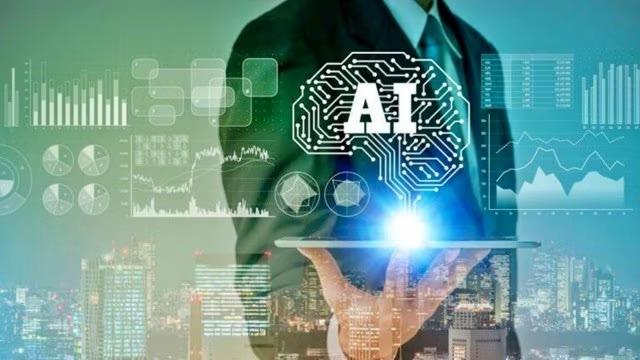AI, machine learning to lead the way to achieve Net Zero: Experts

A two-day conference on Decoding Decarbonisation that concluded Thursday deliberated, among others, the use of Artificial Intelligence and Machine Learning (AI/ML) in the built environment.
At the event, Rupesh Umtol, co-founder and Director, Electro-Mech Consultants showcased a digital twin model creation concept called Btrlyf — a culmination of AI/ML that analyses older buildings with respect to energy efficiency.
According to him, retro-fitting, energy sourcing & efficiency, and occupier engagement are transforming existing buildings to net zero with varying levels of effectiveness. Through the software, a model that has a multiphysics dynamic simulation is made which is then integrated with weather data. After calibrating the data to find energy efficiency of the buildings and suggesting ways to improve it, which are unique to each building, the simulations were performed.
“The newer buildings are definitely designed by keeping net zero and energy efficiency in mind but more than 80 per cent (of the old buildings) are not designed or operated well. Now, for the existing buildings, there is a target that by 2050, all buildings need to be net zero for across their lifecycle,” said Umtol. “Each building is different and each of them uses energy differently due to their complex structures,” he added.
Umtol told that the startup was established in 2017 along with his Singaporean co-founder and technology partners who helped them with the analysis of the data. “Now, Indian cities are also getting mapped. It’s just a part of the city, not the entire city. It will take some time. But in other global cities in Europe and Australia, it is already done,” he said.
Fundamentally, buildings remain the same and if they can get how much land and other basic details and the weather data, they could predict the energy usage of the given building with machine learning and simulation of the building through 3D medium through carefully calibrated systems, Umtol said. “We didn’t complicate the system by asking for too many inputs. We just need a few things and you have your report in half an hour,” said Umtol, stressing the fact that manual surveys take around months to get finished while they could do it to near perfect accuracy if the data sets are accurate, eliminating the barriers to data access and duplication of efforts for everyone.
Dr Nidhi Arora, Director & co-founder of AI at Advic Tech, emphasised that AI could lead the world towards decarbonisation. She highlighted four fundamental problems — energy wastage, uncomfortable indoor environment, poor air quality and high maintenance cost — caused by the heating, ventilation, and air-conditioning (HVAC) system’s malfunctioning.
To address these problems, she suggested the use of AI that could help bring down costs and make the process smoother, draw insights and overall be efficient. The event was organised by Indian Society of Heating, Refrigerating and Air Conditioning Engineers (ISHRAE).